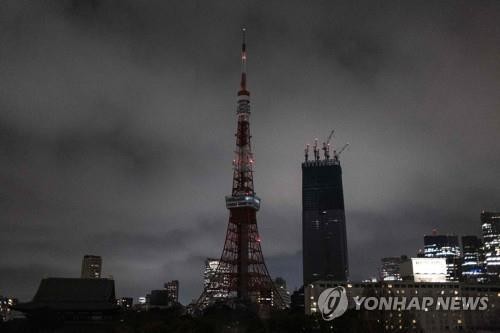
[The Public = Daniel Park] Concerns about the summer power crisis are growing all over the world. International energy prices such as natural gas and oil are skyrocketing because of reasons such as the prolonged war in Ukraine, sanctions on Russia from the West, and abnormal climate overlap.
As we enter the summer season, when the demand for air conditioning is soaring, the warning that an 'electricity bill bomb' can become a reality is getting louder.
In particular, it is observed that an unprecedented 'blackout' (massive blackout) may strike major cities if the extreme heatwave caused by La Niña (an abnormal phenomenon caused by low water temperature in the equatorial region of the eastern Pacific for more than 5 months) overlaps with the unstable electricity supply.
Summer in the northern hemisphere consumes a lot of electricity due to the demand for cooling. This year, the unprecedented heat wave and drought coincided with the unstable supply of fossil fuels and soaring energy prices due to the prolonged war in Ukraine.
"Summer in the Northern Hemisphere is generally the peak period for electricity use," Bloomberg News reported.
In fact, in India, the United States, and southern Europe, an unusual heat wave of over 40 degrees Celsius has already occurred last month. The National Oceanic and Atmospheric Administration's (NOAA) Climate Prediction Center predicts that average temperatures in most of the United States this summer will be above normal.
In addition, it is predicted that in the Midwest of the United States, a severe drought will lead to a decrease in the operation rate of hydroelectric power plants. MISO, a power grid company in the Midwest, said 11 out of 15 states in its jurisdiction were at risk of outages.
According to the Wall Street Journal (WSJ) on the 27th of last month, the North American Power Grid Reliability Association (NERC), a non-profit organization, warned that two-thirds of the United States could experience a blackout this summer.
The WSJ said, "Eco-friendly energy policies are making the U.S. power grid increasingly unstable." The paper pointed out that President Joe Biden's green energy transition policy was behind the destabilization of the US power grid.
According to Bloomberg, 300 million people in Pakistan, Sri Lanka and Myanmar are experiencing power outages. In India, in particular, 16 out of 28 states, where 700 million people live, are reported to have cut electricity for up to 10 hours a day.
The possibility of a blackout this summer is also increasing in Japan. Japanese media pointed out that if Prime Minister Fumio Kishida announced a ban on Russian oil in principle on the 9th of last month, bans on imports of Russian natural gas and coal could raise concerns about energy supply and demand.
Japanese experts predicted that the burden of the public due to rising electricity prices along with concerns about blackouts due to power shortages would be heavy.
Shunsuke Kobayashi, chief analyst at Mizuho Securities, said, "If the price of crude oil rises by $40 per barrel, the burden on Japanese households for one year increases by 4 trillion yen.
In Korea, pressure to raise electricity rates is growing. This is because the Korea Electric Power Corporation (KEPCO) posted an operating loss of 5.7 trillion won in the first quarter and is forecast to record a loss of more than 17 trillion won this year.
As of April, the standard fuel cost linked to international oil prices and climate and environment rates have been revised upwards, resulting in an increase in electricity rates by 6.9 won per kWh. In the case of a four-person household using an average of 307 kWh per month, the burden of electricity bill increased by about 2,120 won per month (excluding VAT and electricity-based fund).
In addition, the unit price of electricity that KEPCO pays to power generation companies soared 2.6 times in April compared to a year ago, increasing pressure for additional electricity rate hikes. Countries around the world are already significantly raising electricity rates amid the burden of high oil prices. France raised 24.3 per cent in February, and the UK raised 54 per cent in April. Japan also increased its cumulative 34.6% since last year.
The Public / Daniel Park webmaster@thepublic.kr
더퍼블릭 / Daniel Park webmaster@thepublic.kr
